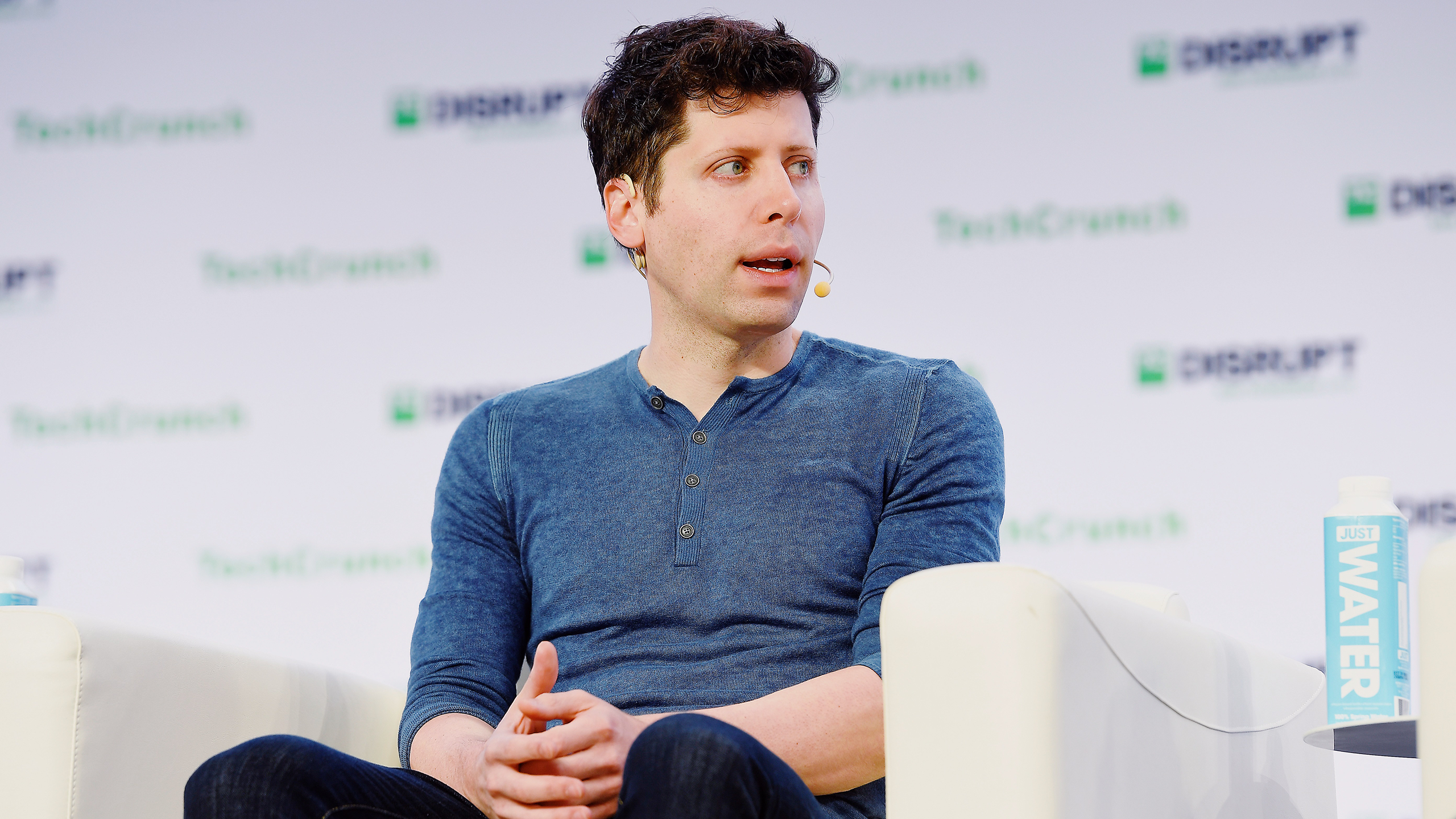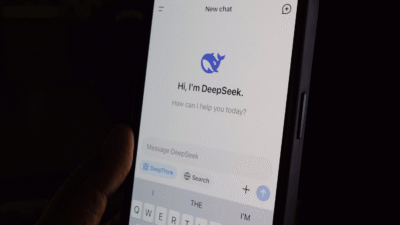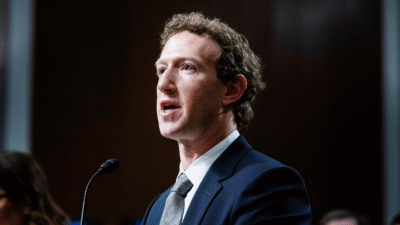2023: The Year in Tech
2023 saw AI live rent-free in all of our heads, plus in an unexpected twist Mark Zuckerberg became the adult in the room.
Sign up for smart news, insights, and analysis on the biggest financial stories of the day.
Attack of the ChatGPT Clones
ChatGPT was the Google Glass of 2023, a hyped-to-the-hilts belly flop. Sorry! We must have been hallucinating. All Fixed.
OpenAI’s ChatGPT burst onto the scene in November 2022, and the resulting scramble to hop on the generative AI hype train turned 2023 into the year of consumer AI. Every major tech company rerouted considerable brain and monetary power toward generative AI products, with some pretty bizarre outcomes.
AI Dogpile
The first company to charge General Custer-style after OpenAI with a consumer-facing chatbot was Google, which released Bard in March. The product promptly gave a wrong answer at its big unveiling, wiping $100 billion off Google’s market value quicker than HAL could sing Daisy. At the tail end of the year, Google launched an all-new product to overshadow Bard, a system called Gemini that’s been trained not just on text but on images and videos as well. Gemini did not whiff Bard-like in its first at-bat, but there’s a lot of game left to play.
For its part, Meta managed to release its first version of Llama, its large language model, in February, but it wasn’t clear anyone noticed. It wasn’t until September that it launched some truly outlandish consumer products in the form of AI “personas,” chatbots with animated avatar faces — some of which included the likenesses of celebrities like Paris Hilton.
We could continue to highlight the ways that various tech companies tried desperately to blend with the AI zeitgeist in 2023, but that seems so negative. Instead, let’s take a moment to remember the times that AI didn’t work quite as planned:
- Meta launched a product to let users generate AI-powered stickers to send to their friend. Pretty much as soon as it rolled out, users spotted that the system had little-to-no guardrails. They were able to generate images of child soldiers, cartoon characters touting guns, as well as some lascivious images of figures including Justin Trudeau and Karl Marx.
- An AI tool deployed by Microsoft to generate polls next to news articles displayed extraordinarily bad taste when it placed a poll next to an article about a murder, asking readers to vote on why they think the victim was killed. Stay classy, ChatGPT.
We bookended the year with some cyclical drama at OpenAI — as CEO Sam Altman was suddenly defenestrated by the board then reinstated just days later. Even if you’re ChatGPT, you can’t make that stuff up.
Shadow Work: OpenAI’s salaried workforce rallied around Altman when the board deposed him, but they’re not the only people who make ChatGPT tick. We saw a few stories about the contracted workforces tasked with honing ChatGPT and its rivals’ conversational style. These outsourced contractors, some of which were paid less than $2 per hour to detoxify ChatGPT’s answers, bear an extremely close resemblance to the content moderators traditionally relied upon by Meta, X, YouTube, et al. What’s old is new.
Mark Zuckerberg Became The Adult in the Room

What does it say about Big Tech that the man who built his empire on a website that rated his classmates on their physical attractiveness is the responsible one?
Meta CEO Mark Zuckerberg kicked off 2023 with some pretty ruthless cost-cutting, proclaiming this would be Meta’s “year of efficiency.” The tactic seems to mostly have paid off, as Meta’s stock price more than doubled. Zuckerberg also launched his Twitter/X competitor Threads, which although not yet a true contender for the title of “Twitter-killer” has been quietly gaining traction in markets including India. Besides, we know there’s only one real Twitter-killer out there.
The Thrilla in Vanilla
The most notable thing to not happen to Elon Musk in 2023 was a cage fight with Mark Zuckerberg. The short-lived media circus around Elon’s challenge serves as a sort of fun-house mirror reflection of Musk’s first year with the platform whose bird got the bird and is now called X. Musk piled on promises about the event (e.g. he was in talks with the Italian government to book an “epic location”) that fizzled away when Zuckerberg put his foot down, saying Musk was not serious enough. Musk, who wasn’t the betting favorite, called him a chicken.
Musk has spent the year promising that X will one day become an “everything app” that does everything short of making your coffee (provided you like it unfiltered). His appointed CEO and advertiser-whisperer Linda Yaccarino had been hard at work since May, trying to win back brands whose presence keeps X’s lights (and its neon sign) on. As always, Musk is doing his level best to help, weighing in on an anti-semitic tweet and precipitating a huge advertiser exodus. Luckily for X, Musk had a chance to clear the air. Instead, he went Full Elon:
- In an expletive-laden interview, Musk said he didn’t want the boycotting advertisers to come back, and seemed to have subscribed to a narrative that X is dying — but it’s their fault, not his.
- Since Musk took the company private, we can’t get a clear idea of its financials, but the banks that loaned Musk money to buy the company had a $2 billion hole in their pocket as of October, The Wall Street Journal reported.
Unplanned Obsolescence: It’s hard to foresee whether X will be able to limp through 2024, or even whether Musk wants it to survive. Remember that at one point he tried to walk away from the deal entirely, and he said in April that the only reason he carried on with the acquisition was because he was legally backed into a corner. In Taylor Swift’s words, maybe X marks the spot where we fall apart. Okay, that’s not what she meant.
Uber Steered into a Profit

One 2010s tech startup is entering middle age strong.
Uber notched its first-ever operating profit in August, just a brisk 14 years after it was founded. It was Just in time, too, as the crunch of high interest rates means the days of cheap money for growth-obsessed tech startups have ended with a whimper. Just ask WeWork.
Taxis! But On Your Phone!
Uber is finishing 2023 with more than a few wins under its belt. Japan hinted it’s going to relax the taxi regulations that essentially freeze ride-hailing firms out of its market, and the company made a small inroad with London’s famous black cabs — although some cabbies are still staunchly anti-Uber.
But there’s no beating the money. Booming demand seemed to go a long way toward Uber getting its cheap-ride economics to stack up, but one thing’s for sure — it’ll be making money off more than just rides in the future:
- One of Uber’s fastest-growing profit drivers is its advertising business. The company realized not only does it have reams of data about its users (where they like to go, what they like to order when they’re too washed out to cook) it has guaranteed eyeballs when they’re stuck watching the little car icon inching toward their location.
- Uber is also increasingly inserting itself as a middleman for other transportation companies. It launched a flight-booking feature in the UK this year, having already started selling train and bus tickets in 2022.
And lest we forget, Uber started offering its very first robotaxi rides to passengers in Las Vegas — though the cars all have human “safety drivers” in the front seat ready to take over if the car suddenly veers off course, putting a slight damper on the futurism vibes.
Bumpy Ride: Uber’s year wasn’t entirely frictionless. In September, the company threatened to pull out of the European market if the EU pressed ahead with plans to classify ride-hailing drivers as employed workers rather than contractors. Let’s see how regulators rate the ride.












